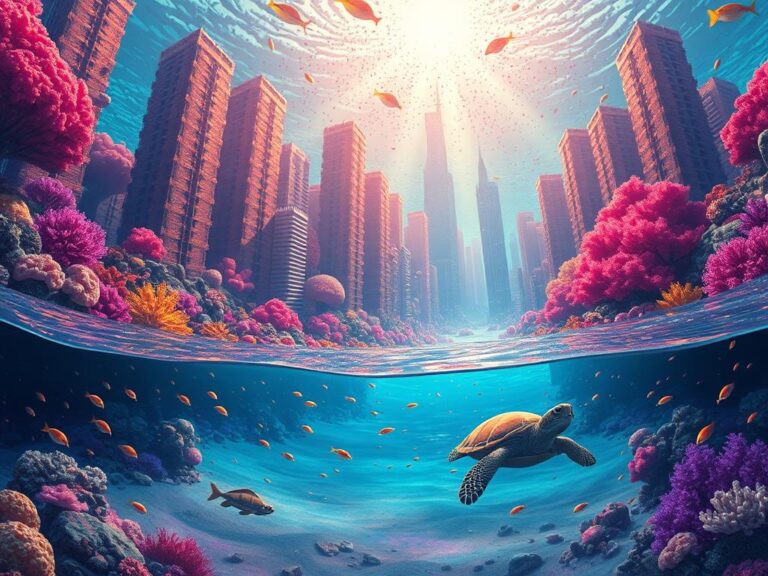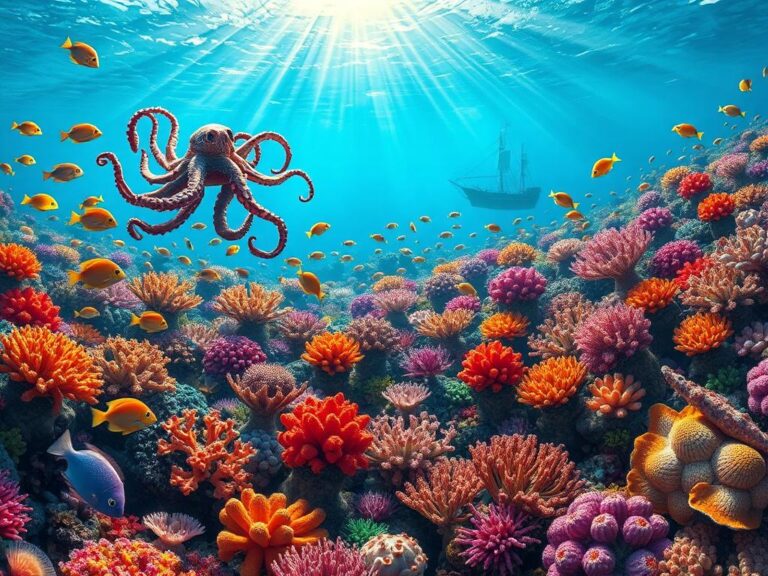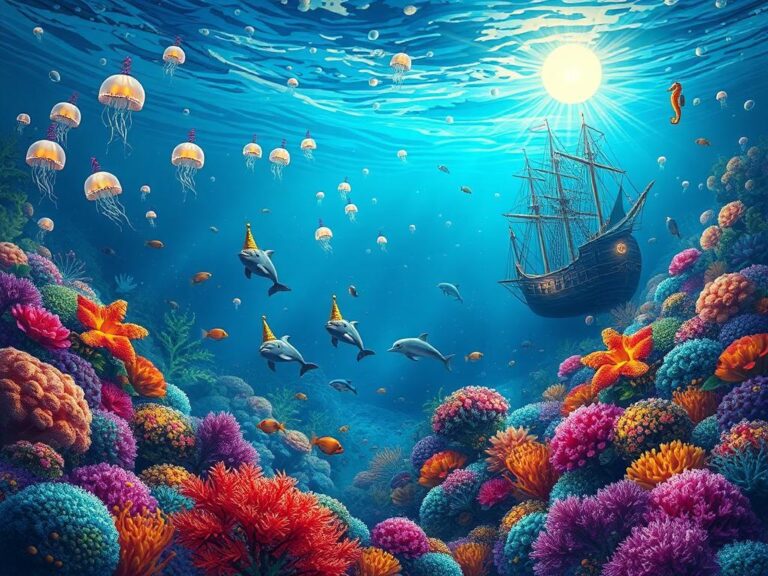Fun Riddles for 3rd Graders: Learning Through Laughter!
Fun Riddles for 3rd Graders: Learning Through Laughter!
Fun riddles for 3rd graders offer a unique way to engage young minds while promoting critical thinking and problem-solving skills.
Riddles can make learning enjoyable, and they also help in developing creativity and language skills.
In this article, we will explore a treasure trove of riddles designed especially for 3rd graders, providing not only entertainment but also educational value.
We’ll delve into the cognitive benefits of riddles, offer tips for using them effectively in different learning environments, and showcase a variety of fun riddles that children can enjoy.
Let’s journey into the world of riddles where laughter meets learning!
The Cognitive Magical Power of Riddles
Riddles are more than just playful puzzles; they serve as valuable tools for cognitive development.
For 3rd graders, engaging with riddles fosters critical thinking as they must analyze, infer, and make connections to solve them.
Research has shown that riddle-solving can improve language skills, as children learn new vocabulary and phrasing through context.
Moreover, the humor embedded in riddles enhances their emotional well-being and stimulates positive social interaction.
As Dr. Seuss famously said, “Words are our most inexhaustible source of magic.” This magic comes alive when children engage in playful thinking that riddles encourage.
How Riddles Enhance Learning for 3rd Graders
Third grade is a crucial stage in a child’s educational journey.
At this age, children are not only learning to read and write but also beginning to think critically about the world around them.
Riddles contribute significantly to this development in various ways:
- Language Development: Riddles expose children to intricate language patterns and phrases.
- Problem-Solving Skills: With every riddle solved, kids sharpen their analytical skills.
- Cognitive Flexibility: Riddles encourage children to think outside the box, which is vital for problem-solving.
- Social Skills: When riddles are shared in groups, it enhances teamwork and collaboration.
- Memory Skills: Remembering riddles strengthens memory retention through repetition and recall.
Fun Riddles for Learning
Now, let’s dive into a collection of fun riddles specifically designed for 3rd graders!
- What has keys but can’t open locks?
Answer: A piano! - What begins with T, ends with T, and has T in it?
Answer: A teapot! - I’m tall when I’m young, and I’m short when I’m old. What am I?
Answer: A candle! - What has hands but can’t clap?
Answer: A clock! - What can you catch but not throw?
Answer: A cold! - What has a face and two hands but no arms or legs?
Answer: A clock! - What is full of holes but still holds water?
Answer: A sponge! - What gets wetter as it dries?
Answer: A towel! - I fly without wings, I cry without eyes. Whenever I go, darkness flies. What am I?
Answer: A cloud! - What has one eye but cannot see?
Answer: A needle! - What has many teeth but cannot bite?
Answer: A comb! - What is so fragile that saying its name breaks it?
Answer: Silence! - You see me once in June, twice in November, but not at all in May. What am I?
Answer: The letter “e”! - What has words but never speaks?
Answer: A book! - What is always in front of you but can’t be seen?
Answer: The future! - What runs around the yard without getting anywhere?
Answer: A fence! - What has four wheels and flies?
Answer: A garbage truck! - What is as light as a feather, yet the strongest man can’t hold it for more than a few minutes?
Answer: Your breath! - What can travel around the world while staying in a corner?
Answer: A stamp! - I have branches but no fruit, trunk, or leaves. What am I?
Answer: A bank! - What begins with an “e” and only contains one letter?
Answer: An envelope! - What kind of band never plays music?
Answer: A rubber band! - What has a neck but no head?
Answer: A bottle! - I have no legs, but I can run. What am I?
Answer: Water! - What can fill a room but takes up no space?
Answer: Light! - What is easy to get into but hard to get out of?
Answer: Trouble! - What has many keys but can’t open any doors?
Answer: A computer keyboard! - What has a thumb and four fingers but isn’t alive?
Answer: A glove! - I go up and down but never move. What am I?
Answer: A staircase! - What can you keep after giving it to someone?
Answer: Your word! - You can’t see me, but I can be heard. I have no shape, but I fill the world with delight. What am I?
Answer: Music! - What gets bigger the more you take away from it?
Answer: A hole! - What has legs but doesn’t walk?
Answer: A table! - What has an eye but cannot see?
Answer: A potato! - What is always in the sky, even when it’s not blue?
Answer: The air! - The more you take, the more you leave behind. What am I?
Answer: Footsteps! - What can be cracked, made, told, and played?
Answer: A joke! - I have keys but open no locks. I have space but no room. You can enter but can’t go outside. What am I?
Answer: A computer! - What has a bottom at the top?
Answer: A leg! - What goes up but never comes down?
Answer: Your age! - What has words but never speaks?
Answer: A book! - I have no voice but I can talk to you. What am I?
Answer: A book! - What starts with P, ends with E, and has thousands of letters?
Answer: The post office! - What runs but never walks?
Answer: A river! - What is always coming but never arrives?
Answer: Tomorrow! - What has a heart that doesn’t beat?
Answer: An artichoke! - What can you hold in your left hand but not in your right hand?
Answer: Your right hand! - I go all around the world but never leave the corner. What am I?
Answer: A stamp! - What has cities but no houses, forests but no trees, and rivers but no water?
Answer: A map! - What has wings and can fly but is not a bird?
Answer: An airplane! - I am found in the ocean, but I am not a fish; I am sometimes found in your kitchen. What am I?
Answer: Salt! - What is orange and sounds like a parrot?
Answer: A carrot! - What runs without legs?
Answer: A nose! - What can be touched but cannot be seen?
Answer: An agreement! - I’m often served but never eaten. What am I?
Answer: A volleyball! - What can you hear but not see?
Answer: Noise! - What has teeth but cannot bite?
Answer: A comb! - What is orange and can swim?
Answer: A goldfish! - What runs through a yard but never moves?
Answer: A fence! - What is full of holes but still holds water?
Answer: A sponge! - What gets broken without being held?
Answer: A promise! - What can fill a room but takes up no space?
Answer: Light! - I have a head and a tail, but no body. What am I?
Answer: A coin! - I’m there when you need me, but I disappear when you don’t. What am I?
Answer: Time! - What has a neck but no head?
Answer: A bottle! - What gets harder to catch the faster you run?
Answer: Your breath! - I am not alive, but I can grow; I don’t have lungs, but I need air; I don’t have a mouth, but water kills me. What am I?
Answer: Fire! - What is black when it’s clean, white when it’s dirty?
Answer: A chalkboard! - What word becomes shorter when you add two letters to it?
Answer: Short! - What has a face and two hands but no arms or legs?
Answer: A clock! - What has a bed but never sleeps?
Answer: A river! - I run all day, but I never walk. What am I?
Answer: A river! - What has a thumb and four fingers but isn’t alive?
Answer: A glove! - What can go up and down without moving?
Answer: A staircase! - What is made of water but if you put it into water it will die?
Answer: An ice cube! - What has a face and two hands but no arms or legs?
Answer: A clock! - What has holes but can still hold water?
Answer: A sponge! - I can be cracked, made, told, and played. What am I?
Answer: A joke! - What has keys but can’t open locks?
Answer: A computer keyboard! - I am tall when young and short when old. What am I?
Answer: A candle! - What loses its head in the morning but gets it back at night?
Answer: A pillow! - What has ears but cannot hear?
Answer: Corn! - What has one eye but can’t see?
Answer: A needle! - What is so delicate that saying its name breaks it?
Answer: Silence! - What is it that you can catch but not throw?
Answer: A cold! - What is found in the middle of the sea?
Answer: The letter ‘e’! - What is tougher than nails but can be broken by a single word?
Answer: A heart! - What is light as a feather but the strongest person can’t hold it for long?
Answer: Breath! - What begins with T, ends with T, and has T in it?
Answer: A teapot! - What can’t talk but will reply when spoken to?
Answer: An echo! - What gets bigger the more you take away?
Answer: A hole! - What has a bottom at the top?
Answer: A leg! - What has a heart that doesn’t beat?
Answer: An artichoke! - The more you have of it, the less you see. What is it?
Answer: Darkness! - I can be long or short; I can be grown or bought; I can be painted or left bare; I can be round or square. What am I?
Answer: A nail! - What begins with an “e” and has only one letter?
Answer: An envelope! - I go in hard, come out soft, and am never the same. What am I?
Answer: Chewing gum! - What has a bank but no money?
Answer: A river! - What can you catch but not throw?
Answer: A cold! - What is it that can’t be put in a saucepan?
Answer: Its lid!
Strategies for Integrating Riddles into Learning
To maximize the benefits of riddles for children, here are some effective strategies.
- Classroom Activities: Use riddles as warm-up exercises or during breaks to stimulate engagement.
- Group Challenges: Present riddles in teams to enhance collaboration and critical thinking.
- Story-Based Riddles: Create stories that unfold with riddles, allowing creative integration.
- Riddle of the Day: Introduce a daily riddle in class, inviting students to solve it together.
- Home Fun: Encourage families to share riddles at home to create joyful learning moments.
Personal Anecdotes and Case Studies
Many educators have shared positive experiences about incorporating riddles into their lesson plans.
One teacher shared, “I used riddles during math classes, and I noticed that students became more interested in problem-solving.” This engagement translates into better academic performance and a love for learning.
There are countless testimonials from parents who report that riddles have been instrumental in improving their children’s confidence in academic settings.
These experiences underline the importance of combining fun and learning for holistic education.
Encourage Interactions with Riddles!
To further engage readers and young learners, we encourage you to share your favorite riddles.
Ask your children to come up with their own riddles, promoting creativity while enjoying this delightful form of inquiry.
A little competition in the form of “Riddle of the Week” can also enhance excitement!
The Joy of Laughter in Learning
Learning through laughter is an effective way to nurture curiosity.
Riddles not only provide a playtime experience but also contribute to well-rounded child development.
As children engage with riddles, they enhance their vocabulary, critical thinking, and creativity.
Conclusion
In conclusion, fun riddles for 3rd graders offer far more than mere entertainment; they foster significant cognitive and social skills.
By incorporating these riddles into academic and home experiences, parents and educators create an environment that prioritizes learning, joy, and laughter.
So go ahead, share these fun riddles, and let the learning adventure continue in delightful ways!
FAQ
Why are riddles important for 3rd graders?
Riddles promote critical thinking, problem-solving skills, and language development. They encourage kids to analyze situations, enhancing their cognitive abilities while having fun.
How can I use riddles at home with my child?
Try introducing a riddle of the day during meals or while traveling. Encourage your child to create their own riddles, deepening engagement and showcasing their creativity.
Can riddles improve social skills?
Absolutely! When children work together to solve riddles, they develop teamwork and communication skills, fostering healthy social interactions.
Are there any other benefits of solving riddles?
Yes! Riddles aid in memory retention, encourage a playful mindset, and help reduce anxiety, creating a more positive spatial environment for learning.
What are your favorite riddles? We’d love to hear your stories in the comments below!







